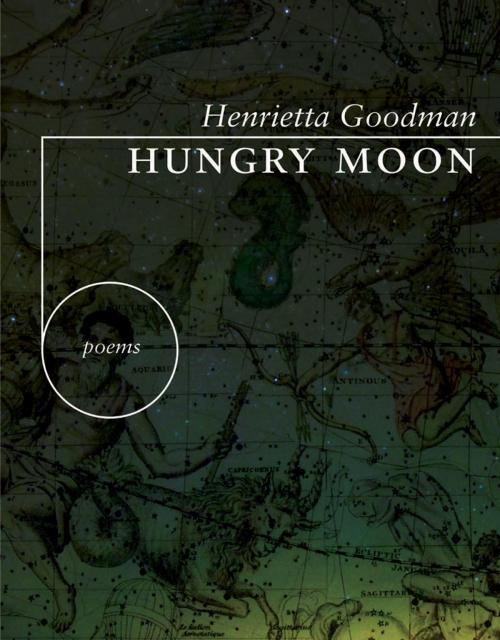| Author: | Henrietta Goodman | ISBN: | 9781885635327 |
| Publisher: | University Press of Colorado | Publication: | November 15, 2013 |
| Imprint: | Center for Literary Publishing | Language: | English |
| Author: | Henrietta Goodman |
| ISBN: | 9781885635327 |
| Publisher: | University Press of Colorado |
| Publication: | November 15, 2013 |
| Imprint: | Center for Literary Publishing |
| Language: | English |
With intimacy and depth of insight, Henrietta Goodman’s Hungry Moon suggests paradox as the most basic mode of knowing ourselves and the world. We need hunger, the poems argue, but also satisfaction. We need pain to know joy, joy to know pain. We need to protect ourselves, but also to take risks. Though the poems are drawn from personal experience, Goodman shares the conviction of such poets as Anne Sexton and Louise Glück that when the poet writes of the self, the self cannot be exempt from culpability. Goodman’s speaker ranges through time and locale—from exploring the experience of flying in a small plane with her lover/pilot over the landscape of the American West to addressing the grief and retrospective self-scrutiny that arise from a friend’s death. Like the work of Mark Doty and Tony Hoagland, Goodman’s poems embrace concrete particularity, entangled as it is with imperfection and loss: “the Quik Stop’s fridge full of sandwiches and small bottles of livestock vaccines,” “the black, hammer-struck moon of your thumb,” “the empty water tower, one rusted panel kicked in like a door.”
With intimacy and depth of insight, Henrietta Goodman’s Hungry Moon suggests paradox as the most basic mode of knowing ourselves and the world. We need hunger, the poems argue, but also satisfaction. We need pain to know joy, joy to know pain. We need to protect ourselves, but also to take risks. Though the poems are drawn from personal experience, Goodman shares the conviction of such poets as Anne Sexton and Louise Glück that when the poet writes of the self, the self cannot be exempt from culpability. Goodman’s speaker ranges through time and locale—from exploring the experience of flying in a small plane with her lover/pilot over the landscape of the American West to addressing the grief and retrospective self-scrutiny that arise from a friend’s death. Like the work of Mark Doty and Tony Hoagland, Goodman’s poems embrace concrete particularity, entangled as it is with imperfection and loss: “the Quik Stop’s fridge full of sandwiches and small bottles of livestock vaccines,” “the black, hammer-struck moon of your thumb,” “the empty water tower, one rusted panel kicked in like a door.”















